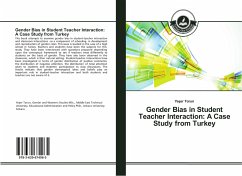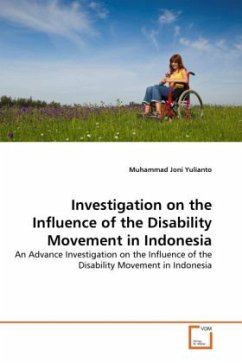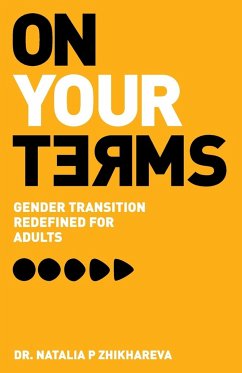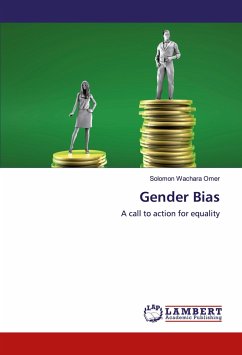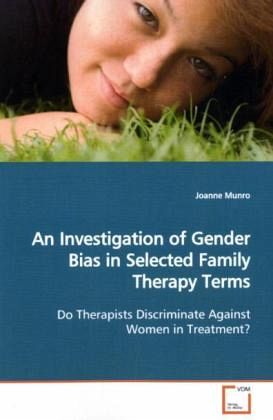
An Investigation of Gender Bias in Selected Family Therapy Terms
Do Therapists Discriminate Against Women in Treatment?
Versandkostenfrei!
Versandfertig in 6-10 Tagen
39,99 €
inkl. MwSt.

PAYBACK Punkte
20 °P sammeln!
The objective of this study was to examine mental health professionals attitudes regarding health in relation to gender. Traditional family therapy theories in general have overlooked the social and cultural context whereby men and women have unequal power both politically and financially. The therapeutic environment is not immune to potential gender bias and in fact can inadvertently perpetuate discriminatory practices. The nature of the client therapist relationship is innately hierarchical and may actually validate the oppressive practices prevalent in our society. The purpose of this study...
The objective of this study was to examine mental
health professionals attitudes regarding health in
relation to gender. Traditional family therapy
theories in general have overlooked the social and
cultural context whereby men and women have unequal
power both politically and financially. The
therapeutic environment is not immune to potential
gender bias and in fact can inadvertently perpetuate
discriminatory practices. The nature of the client
therapist relationship is innately hierarchical and
may actually validate the oppressive practices
prevalent in our society. The purpose of this study
was to explore the perceptions of mental health
professionals in relation to health and gender. A
Semantic Differential tool was used to measure
attitudes of various target terms in this regard. As
therapists, we must have an awareness of gender role
issues in therapy and how such influences impinge on
both the client and ourselves.
health professionals attitudes regarding health in
relation to gender. Traditional family therapy
theories in general have overlooked the social and
cultural context whereby men and women have unequal
power both politically and financially. The
therapeutic environment is not immune to potential
gender bias and in fact can inadvertently perpetuate
discriminatory practices. The nature of the client
therapist relationship is innately hierarchical and
may actually validate the oppressive practices
prevalent in our society. The purpose of this study
was to explore the perceptions of mental health
professionals in relation to health and gender. A
Semantic Differential tool was used to measure
attitudes of various target terms in this regard. As
therapists, we must have an awareness of gender role
issues in therapy and how such influences impinge on
both the client and ourselves.





